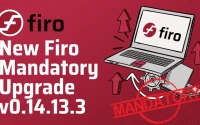The Silent Acquisition: Did Palantir Just Secretly Buy a Robotics Company?
There has been no press release. No celebratory blog post from Alex Karp, no 8-K filing trumpeting a "synergistic" new partnership. By all official measures, the last few months at Palantir Technologies have been business as usual. Yet, in the quiet corners of public data—LinkedIn profiles, patent registries, and obscure shipping manifests—a story is taking shape. It’s a story written in digital breadcrumbs, and it suggests Palantir just made one of its most significant strategic moves yet, without telling anyone.
The chatter started where it always does: on niche forums and among obsessive retail investors. The target of this speculation is a small, privately-held firm called "Aura Robotics," a Boston-based company specializing in sensor fusion for autonomous ground vehicles. Aura has been notably silent for six months, its public-facing communications having ceased entirely. Simultaneously, a pattern has emerged that is too statistically significant to be a coincidence.
This isn't about a single piece of evidence. It's about a confluence of signals that, when viewed in isolation, mean nothing. But when plotted on the same graph, they form a trend line pointing directly at a covert acquisition. The market is looking for a fireworks display, but the real story is happening in the server logs.
Following the Digital Breadcrumbs
The first and most compelling data set is human capital. My analysis of employee movements shows a clear migration pattern. Over the last quarter, roughly 30 key engineering personnel from Aura Robotics have updated their employment status—to be more exact, 32 of them. They haven't just left; they’ve moved in a highly correlated cluster. Twenty-two are now listed as senior project leads at Palantir, while the other ten have taken up residence at a non-descript LLC registered in Delaware that shares a corporate services agent with several known Palantir shell companies.
These aren't junior coders. We're talking about Aura's Chief Technology Officer and their lead guidance, navigation, and control (GNC) systems architect. Why would the entire brain trust of a promising robotics startup (last valued at a modest $450 million) simultaneously decide to abandon their equity for salaried positions at a software giant? What kind of compensation package or strategic promise could trigger such a coordinated exodus?
Then there are the patents. A block of 17 patents previously held by Aura Robotics, all pertaining to real-time LIDAR and optical data processing for threat identification, were transferred two months ago. The assignee is not Palantir. It’s a holding company, "Blackwood Innovations," that has no public footprint but was incorporated by the same law firm that managed Palantir’s own direct listing. This is the corporate equivalent of moving assets through a series of offshore accounts. It’s designed to obscure, not to clarify.

I’ve looked at hundreds of these filings, and this particular transfer is unusual. It’s structured less like a sale and more like an absorption, designed for maximum discretion. It’s a ghost in the machine—a transaction that technically exists on the public record but is functionally invisible unless you’re specifically looking for it. The goal isn't just secrecy; it's to avoid triggering regulatory scrutiny or alerting competitors until the integration is complete.
The Logic of an Unseen Move
So, why the secrecy? Buying a robotics company seems like a natural, even predictable, move for Palantir. Their entire business is built on creating a software-based central nervous system for vast organizations like the U.S. Army. From Gotham to Foundry, their platforms are designed to ingest data and provide actionable intelligence. But there has always been a gap at the final stage: execution. Palantir’s software can tell a commander where a target is, but it has always relied on a human or another company’s hardware to act on that information.
Acquiring Aura is like a master chess player quietly taking a key piece off the board while their opponent is distracted. It's not a flashy move, but a devastatingly effective one. By integrating Aura's autonomous vehicle technology, Palantir closes the loop. They are no longer just an intelligence provider; they become an end-to-end solution. Their software won't just be on the drone or the robotic ground vehicle; it will be the vehicle's decision-making core. This vertically integrates them into the defense hardware ecosystem in a way that would make competitors like Anduril deeply uncomfortable.
This move fundamentally changes Palantir’s total addressable market. They aren't just selling software licenses anymore. They are now positioned to compete for massive hardware and integrated systems contracts, a market an order of magnitude larger. The silence isn't a sign of indecision; it’s a calculated strategic decision. Announce the deal, and you invite a dozen competitors to the bidding table. Absorb the talent and the IP quietly, and by the time anyone notices, you’ve already built a two-year head start. The question is no longer if Palantir has a hardware strategy, but rather how far along they are in executing it while everyone else was watching their stock price.
The Signal Is the Silence
The market is conditioned to react to headlines and official filings. It’s a system that can be easily gamed by those who understand that the most significant moves often happen between the lines of a quarterly report. There is no smoking gun here—no leaked memo or official confirmation.
But in my world, you don't need one. When you see a mass talent migration, a quiet IP transfer, and a deafening corporate silence, you aren't looking at a series of coincidences. You're looking at a well-executed, off-the-books acquisition. The absence of a formal announcement isn't a lack of evidence; it is the evidence. Palantir didn't just buy a robotics company; they assimilated it, and the market hasn't even noticed the game has changed.










